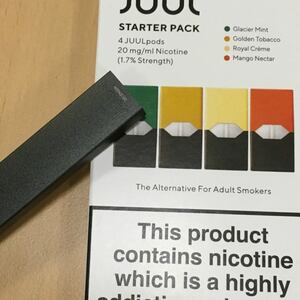Juul Labs, which hawks flavored e-cigarettes that teens love, recently drew a controversial suitor: ex-White House chief strategist Steve Bannon.
The offer came during a meeting on Oct. 10 of last year, where Nick Muzin, a former staffer for Sen. Ted Cruz (R-TX), met with Tevi Troy, vice president of public policy at Juul. At the meeting, Muzin pitched Troy on the lobbying services of his firm, Stonington Global. Muzin also brought up Bannon, saying the former White House strategist would help with his company’s lobbying work for the vape company, according to communications by a person with direct knowledge of the pitch, which The Daily Beast reviewed.
Muzin’s pitch also highlighted the fact that one of his fellow Stonington lobbyists, James Frinzi, previously worked for Sen. Lisa Murkowski (R-AK) —one of the Senate’s most outspoken critics of the e-cigarette industry. The message was clear: Frinzi’s access to Murkowski could have big payoffs.
At the time, various lobbyists of different stripes were approaching Juul as the company was facing a regulatory onslaught. A source familiar with Bannon’s work said that he has “never worked for or pitched any company for lobbying,” which is technically true. A source with knowledge of the Oct. 10 meeting said that Stonington was the one who requested it and, ultimately, Juul passed on Muzin’s proposal.
Reached by phone on Wednesday afternoon, Frinzi said he does not personally know Bannon and was not aware that he was brought up in the meeting. Juul and Bannon did not provide comment for this story. Stonington did not respond to multiple requests.
Troy, who worked in John Ashcroft’s Senate office and the Department of Health and Services during the George W. Bush administration, has made multiple appearances on Breitbart’s SiriusXM radio show—the program of the website Bannon previously ran. He also called Bannon the White House’s “resident intellectual” and warned after his ouster that bringing in another person of his ilk could cause trouble for the Trump administration.
“If the president selects another Bannon to replace him, it could continue to encourage some of the administration’s darker tendencies, which have added to some of the alarming messages coming from the administration,” Troy wrote in a Politico op-ed published a few days after Bannon’s firing.
At the time Muzin was pitching his lobbying services, Bannon was in exile from Trumpworld following a high-profile flame-out early last year. Since then, Bannon has pursued several big projects, though his political group, Citizens of the American Republic, appears to be inactive in the wake of the GOP’s 2018 midterm losses.
Citizens of the American Republic had consisted of Bannon and several associates, including Sam Nunberg, another former Trump adviser who had his own falling-out with the president. On Wednesday, Nunberg confirmed to The Daily Beast that he is no longer involved with Bannon’s political group.
Muzin has deep ties in the conservative movement and Stonington has a list of prominent clients, including helping the government of Qatar curry favor with the Trump administration. But at the time the firm was pitching its services to Juul, the company was already invested heavily in lobbying. Juul spent more than half a million dollars on lobbying in the third quarter of last year—up 167 percent compared to the amount spent during the previous quarter—as the company grappled with potential new e-cigarette regulations.
Juul stands to benefit mightily from robust lobbying operation. In late September, officers with the Food and Drug Administration (FDA) raided the company’s offices and seized documents about its sales and marketing, according to The New York Times. The company’s e-cigarettes are hugely popular with teens, who post pictures and videos of themselves “juuling” on Instagram. The viral sensation has infuriated some American legislators, who say the company isn’t doing enough to keep underage teens from using its products. And Trump’s FDA chief, Scott Gottlieb—who frequently collaborated with Troy on opinion articles over the years—has proven to be an energetic regulator of e-cigarettes, drawing vociferous criticism from conservatives and libertarians, as well as the vaping community.







